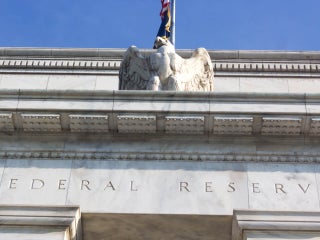Summary
The Supreme Court ruled in favor of Amex’s ‘anti-steering’ rules, which block merchants from offering customers discounts for using a card that’s cheaper to process
The content on this page is accurate as of the posting date; however, some of our partner offers may have expired. Please review our list of best credit cards, or use our CardMatch™ tool to find cards matched to your needs.
American Express’s rule prevents merchants from steering credit card users to a different card with lower transaction fees, called “swipe fees,” paid by the merchant.
“Swipe fees are the engine that powers the whole credit card rewards game,” Creditcards.com senior industry analyst Matt Schulz said. “If those fees had taken a hit \u2026 it would’ve been great news for merchants’ bottom line but would almost certainly have marked the end of the golden era of credit card rewards.”
The case, Ohio vs American Express, was brought by Ohio’s attorney general and 16 other states. They argue that the anti-steering rule blocks competition.
But when you consider the benefits to cardholders, the rules against steering do not necessarily violate the principle of a competitive market, the court said in a 5-4 ruling.
“The credit card market must be defined to include both merchants and cardholders,” Justice Clarence Thomas wrote for the majority. Looked at that way, AmEx’s anti-steering rules don’t necessarily harm competition overall just because they drive up the transaction fees that merchants pay, the decision stated.
Swipe fees charged to merchants average between 2 and 3 percent of each transaction, but can range up to 5 percent for some cards with top-tier benefits. The fees pay for cash back, points and miles that rewards cards deliver.
Long-running battle reaches end
In 2010, the U.S. Justice Department and several states sued Visa, American Express and Mastercard, saying the anti-steering rule violates antitrust law. Visa and Mastercard settled, but AmEx remained in the fight.
Initially, a federal court ruled against the card networks, saying their rules stifled competition. But the 2nd Circuit Court of Appeals in New York reversed that. The appeals court said that card networks have two sets of customers: the merchants who select which transaction networks to use, and consumers who select which credit card to use. In this “two-sided” market, the prices charged to merchants are only part of the story, the appeals court ruled.
See related: Credit card case before Supreme Court could change rewards game
AmEx argued that card rewards encourage card use and make the market larger than it would be. According to court papers, AmEx has 26.4 percent of transactions. That makes it a distant No. 2 after Visa, with 45 percent. Mastercard followed with 23.3 percent and Discover had 5.3 percent, according to the 2013 statistics.
More recent credit card market share figures not considered in the court’s decision show Visa gaining ground at rivals’ expense. According to analytics firm Trefis, Visa had share of 53 percent in the first quarter of 2018, followed by Mastercard at 21.9 percent, AmEx nearly tied with 21.6 percent, and Discover at 3.8 percent. The market share figures are based on transaction volume.
During a hearing before the Supreme Court in February, Ohio’s lawyer Eric Murphy argued that AmEx should have to show that the benefits of card rewards outweigh the negatives of anti-steering rules, not just make the argument without proof.
The court’s ruling Monday disagreed, saying the burden was on the plaintiffs to show anticompetitve practices. The ruling said that AmEx’s business model depended on merchant swipe fees instead of interest paid by cardholders. Visa and Mastercard, with different business models, could elbow aside AmEx in the absence of anti-steering rules.
If anti-steering rules had been removed, retailers would have been able to push back against rising swipe fees by giving customers a break at the register for using cheaper cards.
The biggest losers in the decision might be people who use cash or debit cards. They don’t get card rewards, but subsidize them through prices they pay, consumer advocates argue.
Dissenting opinions
In a dissent, Justice Stephen Beyer said the anti-steering rule “clearly has serious anticompetitive effects.” Shoppers may benefit from steering “whether because merchants will offer them incentives to use less expensive cards, or in the form of lower retail prices overall.”
Consumer advocates and retail industry groups also criticized the decision.
“The court’s decision makes life more difficult for consumers,” said a statement from Mike Landis, litigation director at the U.S. Public Interest Research Group.
Retailers pay swipe fees of $70 billion a year, raising prices at the register by hundreds of dollars a year for the average family, according to the National Retail Federation.
“This misguided decision represents a missed opportunity to take a stand in favor of free markets and bring soaring credit card fees under control,” the industry group’s general counsel Stephanie Martz said in a statement. She equated the anti-steering rule with a “gag order” that prevents merchants from telling customers that credit card swipe fees drive up prices.
The case doesn’t end the battle between retailers and credit card transaction networks. Walmart is suing Visa, saying the No. 1 network used its market dominance to jack up swipe fees that retailers pay. That case, however, was also brought under antitrust law.
Legal experts say Monday’s ruling has side implications for the technology industry, where two-sided markets also occur. Tech giants such as Google, Amazon and Facebook may be insulated from antitrust claims under the court’s two-sided market thinking.
“Each of these technology platforms serves two types of interdependent markets or customers,” said Thomas G. Jackson, a technology law expert with the New York-based firm Phillips Nizer. The court’s decision “is a huge win for the big guys.”
Editorial Disclaimer
The editorial content on this page is based solely on the objective assessment of our writers and is not driven by advertising dollars. It has not been provided or commissioned by the credit card issuers. However, we may receive compensation when you click on links to products from our partners.



